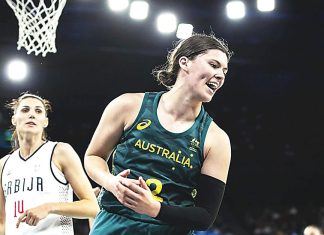Brendan Ancilleri is a Latrobe Valley gay man who would one day like the opportunity to marry, but he says a plebiscite is not the way to go about achieving marriage equality.
Mr Ancilleri is the youth representative of the lesbian, gay, bisexual, transgender, queer and intersex group, Gippsland Rainbow Collective.
He told The Express he did not personally support a marriage equality plebiscite, fearing its detrimental consequences to the LGBTQI community.
“We’ve already seen the ‘no’ campaign getting extremely hateful. There are kids not out all around the country that could see this and I personally feel this could cost lives,” Mr Ancilleri said.
Instead of the plebiscite – which Labor looks likely to block on 11 October when the caucus next meets – Mr Ancilleri would like to see marriage equality debated in parliament.
“We’ve already seen the polls… the majority of the country want a vote in parliament, not the plebiscite,” he said.
Mr Ancilleri was baffled Australia had not yet allowed same-sex couples to marry, but was happy to “wait a little longer” to achieve equality through a parliamentary vote.
“We’re a really diverse country and we raise everyone to be who they are… honestly I don’t know why we haven’t got it and I don’t think the rest of the world understands why we’re so backwards on this (issue), it’s below us,” he said.
“We’ll probably be the last in the world to get it (marriage equality), and Mr Shorten blocking the plebiscite, yes, we may have to wait a little longer, but I guess it’s the best way to go.
“That way the politicians can do what we elected them to do.”
Member for Gippsland Darren Chester said the Coalition went into the election with a clear commitment to hold a plebiscite and “I think the majority of Gippslanders want to have a chance to have their say”.
“‘We shouldn’t hold costly plebiscites every time we get a difficult issue but the Federal Parliament has been unable to deal with this issue conclusively for several years,” Mr Chester said.
“This is the fairest way to resolve the issue and everyone gets to have their say.”
Mr Ancilleri disagrees, describing the plebiscite as a “big waste” of money”.
He believes no taxpayer money should be spent on either side of a marriage campaign.
“Put it towards education, health, transport, there are so many other options to better spend the $150 million,” Mr Ancilleri said.
He said his biggest fear was the health and wellbeing of the LGBTQI community and the “damage” an anti-marriage equality campaign could cause to already vulnerable youths.
But Mr Chester said the plebiscite was “a reasonable pathway to give all Australians a chance to have their say”.
“I think we should get on with it, have the vote and let the Australian people decide,” Mr Chester said.
“I remain confident the people of Australia will be able to have this debate in a considered and respectful manner.”











